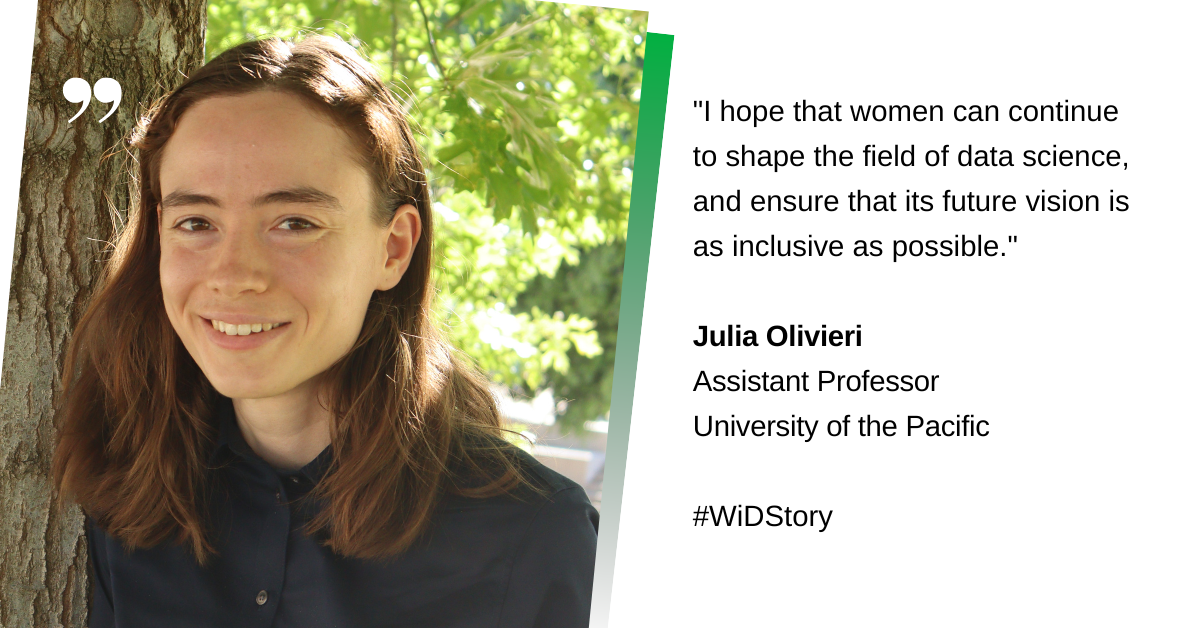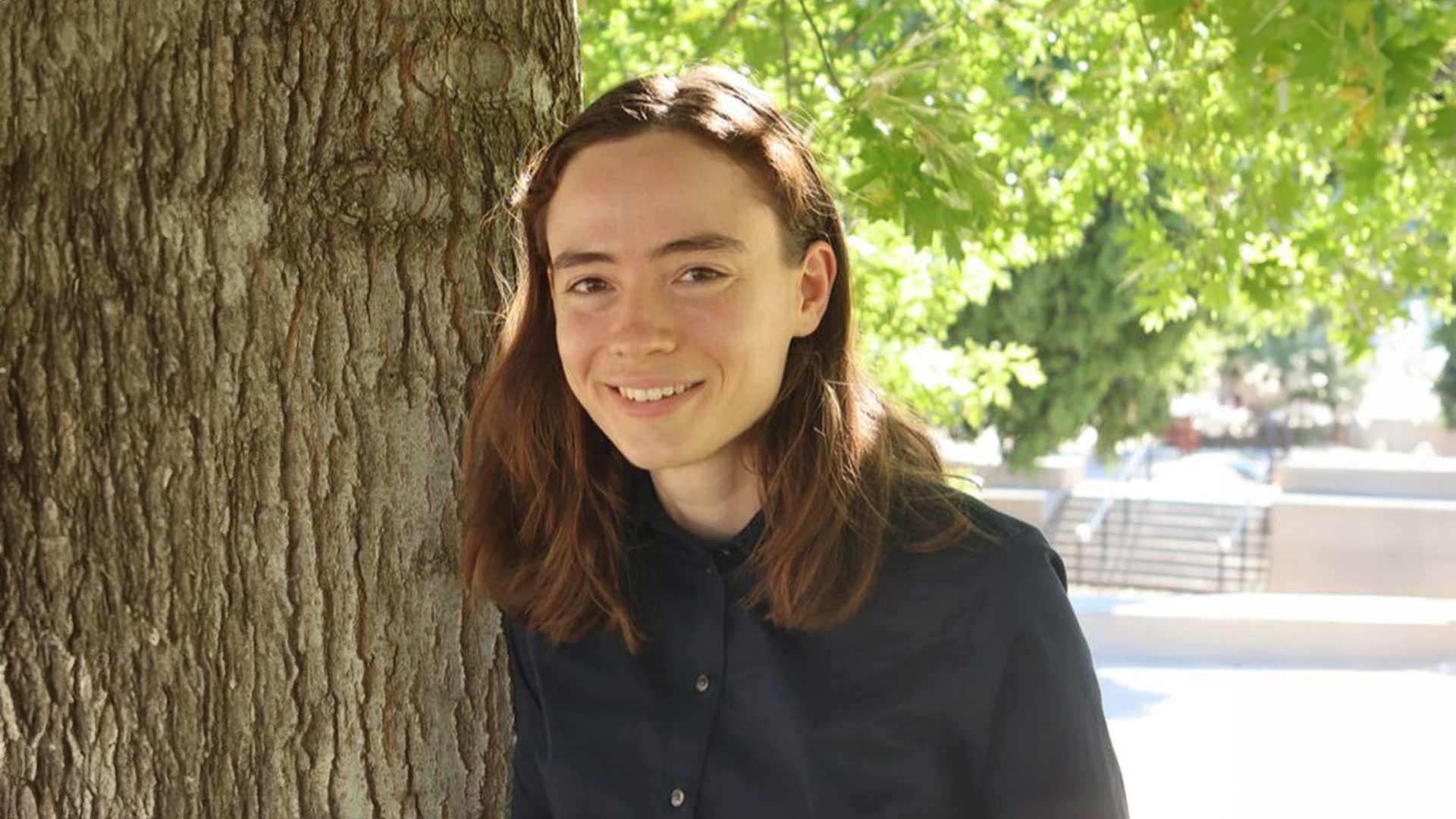Julia Olivieri, assistant professor of computer science at the University of the Pacific, has been instrumental to the development of the WiDS Workshops while launching her own teaching career. The WiDS Global team has been grateful to have Julia serve on the WiDS Workshop committee for the past year.
Tell us about your background.
I grew up in the suburbs of Philadelphia, went to Oberlin College where I studied math and biology, and completed my PhD in Computational and Mathematical Engineering at Stanford University, where my research focused on computational biology. I am currently a professor of computer science at University of the Pacific.
I enjoy reading (I love downloading books from the library onto my Kindle), playing board games (Dune Imperium, based on the novel and movie Dune, is my current favorite), and all kinds of crafts (I recently crocheted an octopus).
How did you get interested in data science?
I did research at the University of Michigan after my junior year of college in a computational biology lab. It was a great way to merge my interests in computer science and math with my interest in biology. It was the first time I saw a biology lab where everyone did all their work on the computer. I was impressed by how large-scale the work was: it didn’t feel like they were answering one small question, it felt like they were analyzing lots of data and drawing big conclusions from it.
What are you currently working on?
I’m currently working on mapping RNA molecules to their spatial locations in mouse tissue, and designing algorithms to identify RNA that has spatial patterning and identifying what that means. I also started a faculty position this year, so I’m focused a lot on teaching. My current classes are Advanced Algorithms and Graph Theory for Computer Science.
How did you first discover WiDS?
I learned about WiDS during my first year at Stanford. Margot was the director of my department (ICME), and she told us about it. I signed up to volunteer, and was able to attend the conference for free. I remember the talks being clearer, more broadly applicable, and more interesting than those at the other conferences I had attended – without sacrificing technical expertise. That first year I remember being most struck by how important it is to account for biases in data (one presentation was about a research project that achieved 100% accuracy – then the team realized the model was learning whether the tumor was cancerous or benign based on the serial number of the experiment). I went back in subsequent years as often as I could. The WiDS conference in 2020 was the last public event I attended before the pandemic.
How has WiDS made an impact on your life and/or work?
I got more involved with WiDS last year when I taught a three-workshop series on Graph Theory for Data Science through the WiDS workshops. This provided me with additional teaching experience (specifically designing and presenting my own lectures) that has been very helpful as I’ve started my career as a professor. You can watch the series here:
- Graph Theory for Data Science, Part I: What is a graph and What Can We Do With It?
- Graph Theory for Data Science, Part II: Graph Algorithms: Traversing the tree and beyond
- Graph Theory for Data Science, Part III: Characterizing Graphs in the Real World
I currently serve on the WiDS Workshop Committee, organizing a set of four workshops on the last Wednesday of each month. This has been a great opportunity to connect with researchers from industry and academia working on all different aspects of data science. I’ve really enjoyed working with the other members of the WiDS workshop community, and collaborating to put together the best workshops we can for the attendees. It’s always interesting to see what resonates with attendees, and what instructors are excited to teach about. I’ve also really enjoyed getting to know our instructors better through workshop instructor meetups.
What comes next for you? And what are your hopes for women in the data science in the future?
I am currently focused on my new job as an assistant professor of computer science. I want to focus on my teaching and research to serve the students at the University of the Pacific as best I can. I also want to get involved with DEI initiatives at the University of the Pacific, and encourage women and other underrepresented minorities to get involved with data science. I hope that women can continue to shape the field of data science, and ensure that its future vision is as inclusive as possible.



